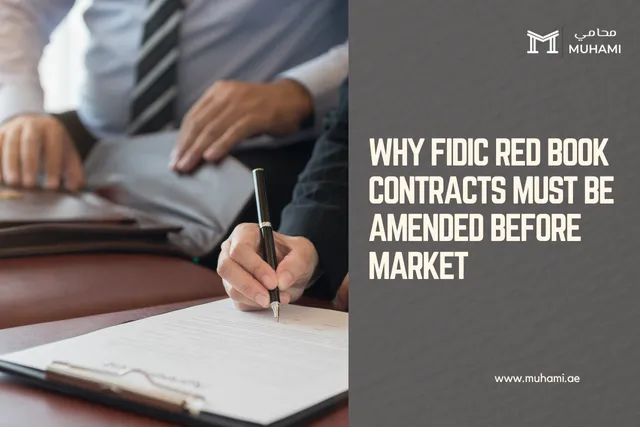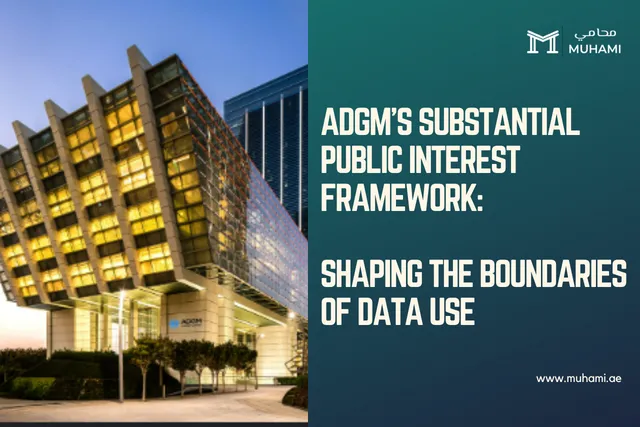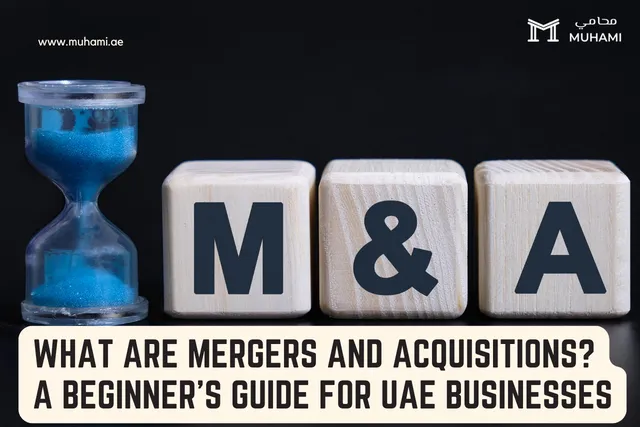Why FIDIC Red Book Contracts Must Be Amended Before Market - Key UAE-Specific Adjustments

Introduction
For Owners and Contractors in the UAE, the unamended FIDIC Red Book (1999/2017) is a strong starting point, but it is not a “plug-and-play” solution. The UAE’s legal and commercial landscape introduces risks that FIDIC, by design, leaves to project-specific negotiation. Going to market on an unamended form often pushes those negotiations into the pressure cooker of preferred-bidder stage or, worse, post-award administration, when leverage is gone and disputes become costlier.
Well thought-out pre-market amendments, which are transparent, balanced and disclosed to bidders, can materially reduce pricing for risk, accelerate evaluation and cut the probability of claims. Below are the adjustments that consistently de-risk deals in the UAE market.
Liquidated Damages: Make Them Enforceable and Survivable
UAE courts may adjust agreed damages if the actual loss is manifestly higher or lower than the pre-estimate. To keep liquidated damages (the “LDs”) effective:
- In the Particular Conditions, record the key factors used to set delay damages and make it clear that LDs are the sole remedy for pure delay and not a penalty;
- Tier the LDs, as a stepped regime can be more realistic, for instance, baseline LDs for ordinary delay, with enhanced LDs for critical milestones;
- By setting LDs transparently and linking them to demonstrable risks, Employers preserve enforceability while giving Contractors a clear basis for pricing.
Notice and Claims Time-Bars - Clarity Beats Traps
Contractors often argue that strict time bars are unfair or misunderstood, while Employers need timely notice to mitigate delay and cost. A practical balance is essential:
- Make notice a condition precedent, but make it a reasonable and clear notice period, such as 28 days. Relief should be allowed where late notice does not prejudice the Employer, or where the event is ongoing.
- Standardise formats so that short, annexed templates for claims and extension-of-time notices remove ambiguity about “form and content” and reduce unnecessary disputes.
- This approach promotes discipline and transparency without turning the claims process into a procedural trap.
Expanding the Definition of Completion
FIDIC’s standard definition of completion does not always capture the practical requirements of UAE projects. To reduce disputes at handover, the definition should be expanded to include:
- Submission of test results and warranties;
- Provision of any statutory certificates or approvals from local authorities; and Completion of all documentation necessary for the project’s lawful use.
This creates clarity for both parties and ensures that “completion” genuinely means the works are ready for operation and compliant with UAE regulations.
Payment Terms: Precision Matters
Payment terms are central to project cash flow and should be drafted carefully, especially where the contract is lump sum rather than re-measurable:
- Clarity on interim payments - certification timelines and payment cycles should be fixed and predictable;
- Employer’s rights - Employers need an explicit ability to withhold part of a payment certificate where the Contractor has materially failed to comply with major obligations;
- Risk allocation - where lump sum pricing is adopted, variations and valuation rules should be unambiguous so that Contractors cannot recover through claims what was excluded from the tender price.
Well-structured payment provisions are often the single most effective way to reduce disputes downstream.
Governing Law, Language and Dispute Forum: Align With Enforcement
A common misstep is mismatching governing law, arbitral seat and contract language, inviting costly procedural fights. These choices must be deliberate:
- Law and arbitration - for most projects with onshore UAE assets, it is advisable to use UAE law with arbitration under a recognised centre (e.g., DIAC or ICC). The arbitral seat, whether Dubai onshore or DIFC, should be specified clearly.
- Language - contracts should confirm English as the governing language. If Arabic is required for onshore filings, the contract should state that the English text prevails, with certified translations used for enforcement.
Taking these decisions up front avoids jurisdictional disputes and ensures awards can be enforced where it matters.
What is the Solution: A Smarter “Particular Conditions” Pack
The most effective way to proceed is to issue a clean, bidder-friendly Particular Conditions pack that does four things:
- Calls out the UAE-specific non-negotiables such as liquidated damages and dispute forum;
- Locks down payment and security mechanics to stabilise cash flow and reduce uncertainty;
- Clarifies completion and variation allocation so pricing is accurate, not padded with risk premiums; and
- Provides practical templates (for bonds, notices, certificates and claims) so site teams can administer the contract rather than debate its form.
Bidders will price certainty and by amending the Red Book before market, and signalling balance rather than hidden trap, Employers reduce risk premiums, avoid back-end claims, and deliver projects with fewer surprises.
Disclaimer - This article provides general information only and does not constitute legal advice. Each project is unique, and risk allocations should be tailored to its financing structure, stakeholders, and governing framework. Parties should obtain specific legal advice before finalising contract terms in the UAE.
Any Questions?
Connect with lawyers and seek expert legal advice
Share
Find by Article Category
Browse articles by categories
Related Articles

ADGM’s Substantial Public Interest Fram…
The Abu Dhabi Global Market (ADGM) has introduced new Data Protection Regulatio…

ADGM’s Substantial Public Interest Framework: Sha…
The Abu Dhabi Global Market (ADGM) has introduced…

Luxury, Scarcity, and the Law: Hermès B…
On September 17, 2025, a California federal judge dismissed an antitrust lawsui…

Luxury, Scarcity, and the Law: Hermès Birkin Anti…
On September 17, 2025, a California federal judge…

What Are Mergers and Acquisitions? A Be…
Mergers and acquisitions (M&A) are big moves that can transform a busi…

What Are Mergers and Acquisitions? A Beginner’s G…
Mergers and acquisitions (M&A) are big m…
